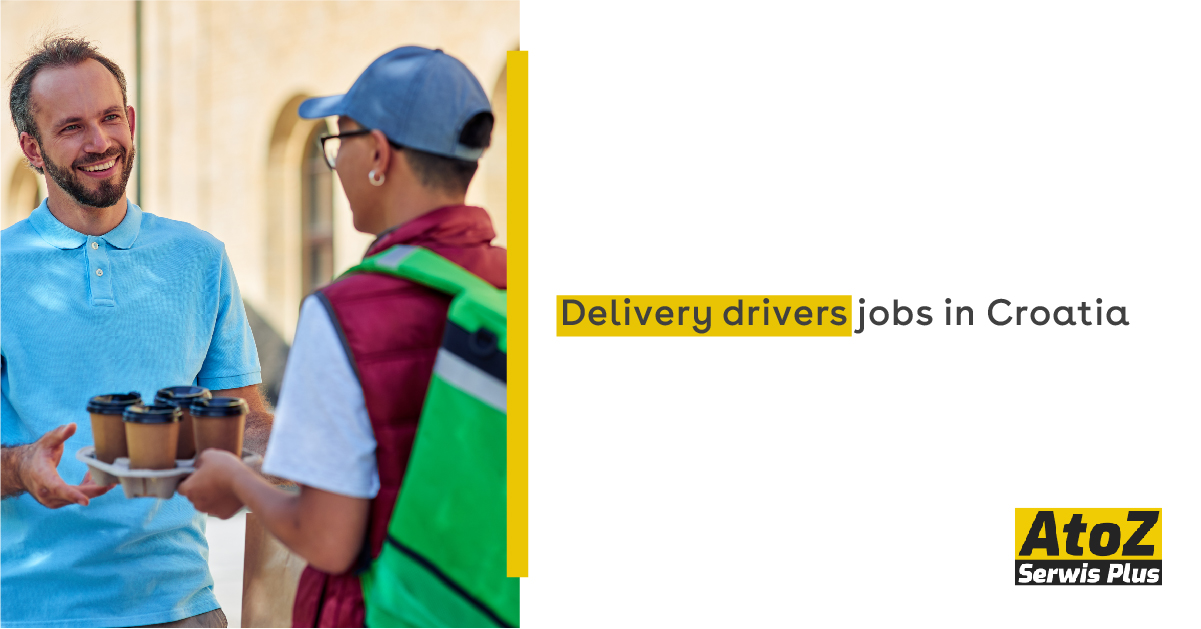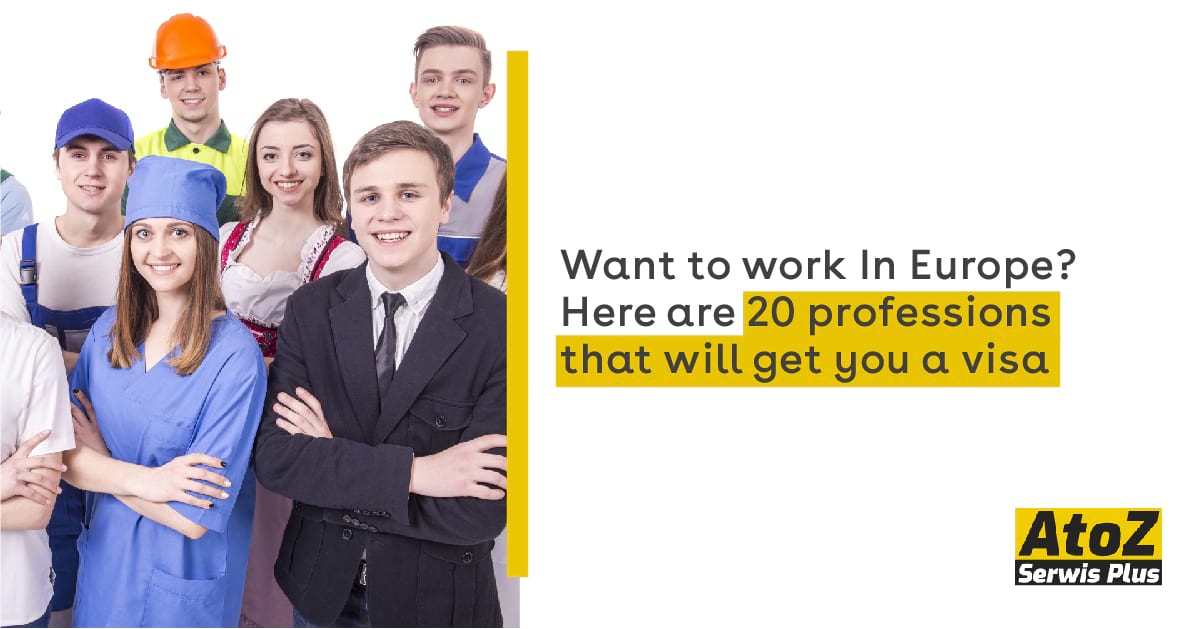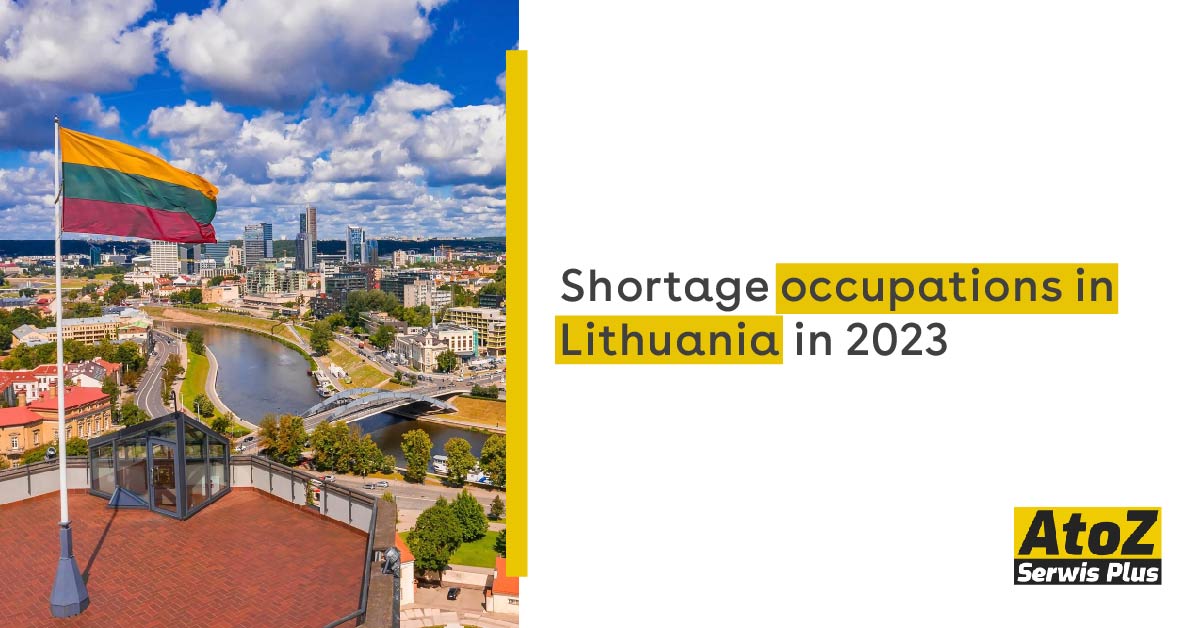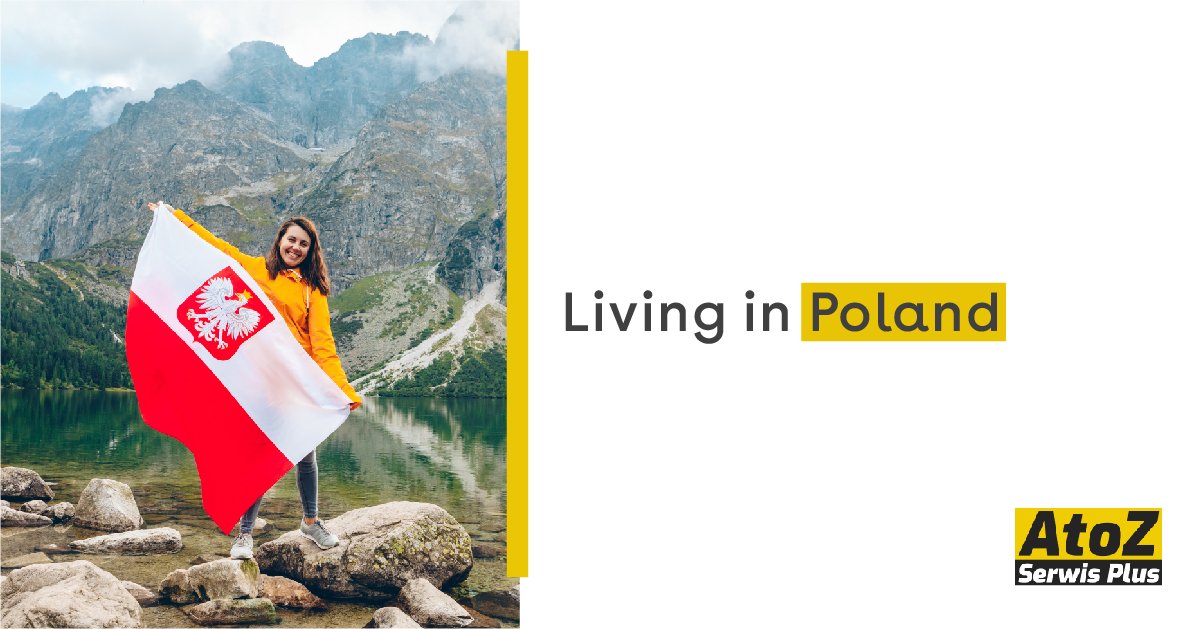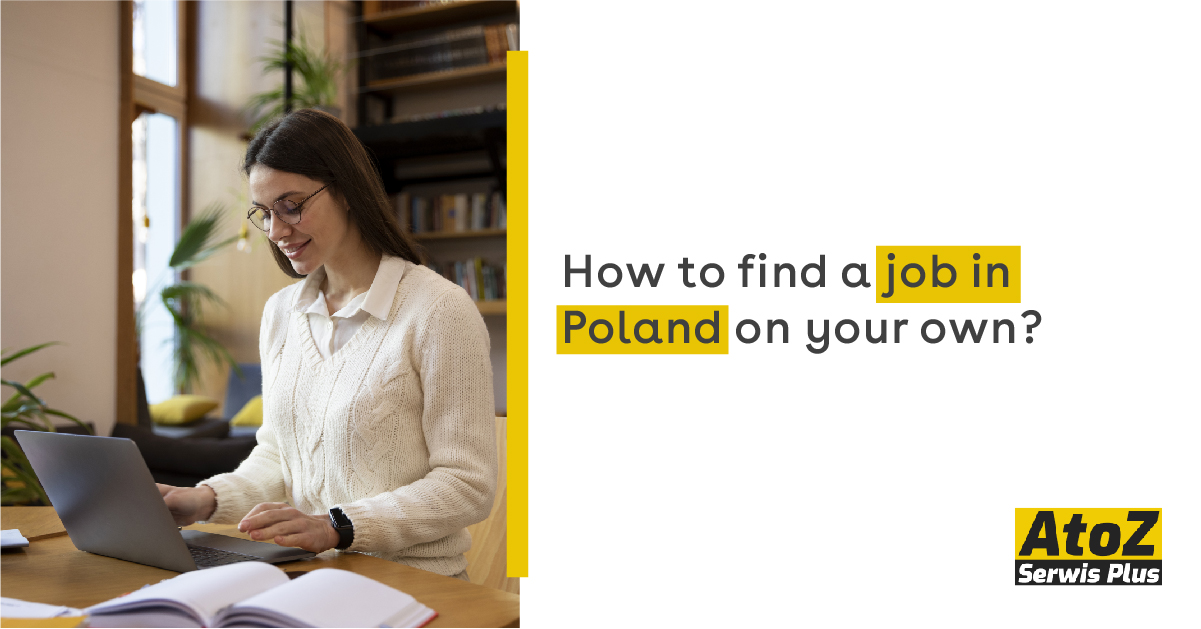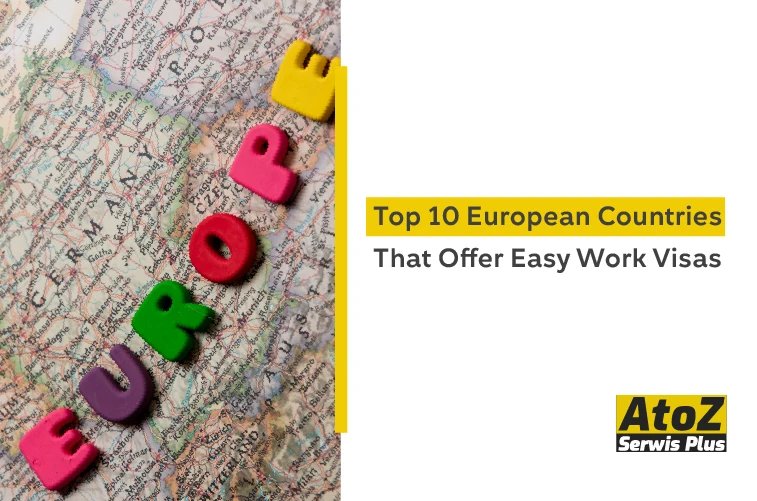

Top 10 European Countries That Offer Easy Work Visas
Are you dreaming of working in Europe but daunted by complex visa processes? You're not alone! Many professionals and digital nomads seek opportunities abroad, but the red tape can be overwhelming. Fear not, because we've got your back!
Imagine strolling through charming cobblestone streets, sipping espresso at a quaint café, or collaborating with international colleagues in a cutting-edge tech hub. These experiences could be your daily reality in one of Europe's welcoming countries. But which nations offer the smoothest path to your European work adventure?
This blog post'll unveil the Top 10 European Countries That Offer Easy Work Visas. From Germany's robust economy to Estonia's digital paradise, we'll explore diverse destinations that are rolling out the red carpet for international talent. Get ready to
Germany: Europe's Economic Powerhouse
Blue Card program for skilled professionals
Germany's Blue Card program is a fast-track work permit for highly skilled non-EU professionals. This sought-after visa offers numerous benefits:
- Simplified application process
- Minimum salary requirement: €56,400 annually (2023)
- Path to permanent residency in just 21 months
- Family reunification options
|
Requirement |
Details |
|---|---|
|
Education |
University degree |
|
Job Offer |
In relevant field |
|
Language |
Basic German (B1) |
Job Seeker Visa for graduates
This unique visa allows international graduates to search for employment in Germany for up to 6 months. Key features include:
- No job offer is required initially
- Opportunity to explore various industries
- Convertible to a work permit upon securing employment
Work permit options for various industries
Germany offers diverse work permit options catering to different sectors:
- IT Specialists: Fast-track visa for tech professionals
- Skilled Workers: For those with vocational training
- Researchers: Special permits for scientific endeavors
- Freelancers: Self-employment visas for independent professionals
Now that we've explored Germany's welcoming work visa options, let's move on to Sweden's approach to embracing international talent.
Sweden: Embracing International Talent
Work permit process for non-EU citizens
Sweden's welcoming approach to international talent is reflected in its streamlined work permit process. Non-EU citizens can apply for a work permit online through the Swedish Migration Agency's website. The process typically involves:
- Securing a job offer from a Swedish employer
- Submitting necessary documents (passport, job offer, etc.)
- Paying the application fee
- Waiting for the decision (usually 1-3 months)
|
Requirement |
Details |
|
Job Offer |
Must meet minimum salary requirements |
|
Duration |
Initial permit valid for up to 2 years |
|
Extension |
Possible to extend for another 2 years |
Fast-track system for in-demand occupations
Sweden has implemented a fast-track system for certain in-demand occupations, making it easier for skilled professionals to obtain work permits quickly. This system applies to:
- IT specialists
- Engineers
- Scientists
- Construction workers
The fast-track process can reduce waiting times to as little as 10 days, significantly expediting the relocation process for highly skilled workers.
Opportunities in tech and startup sectors
Sweden's thriving tech and startup ecosystem offers numerous opportunities for international talent. Stockholm, often called the "Silicon Valley of Europe," is home to unicorn companies like Spotify and Klarna. Key advantages include:
- Strong focus on innovation and R&D
- Generous funding opportunities for startups
- Excellent work-life balance and social benefits
With its welcoming attitude toward foreign workers and robust job market, Sweden is an attractive destination for those seeking to work and live in Europe.
Netherlands: Gateway to European Business
Highly Skilled Migrant Program
The Netherlands' Highly Skilled Migrant program is a cornerstone of the country's approach to attracting global talent. This program offers a streamlined process for skilled professionals to obtain work permits, making it one of the most attractive options for those looking to work in Europe.
Key features of the program:
- Fast-track application process
- Minimum salary requirement based on age
- Possibility to bring family members
- Access to the Dutch healthcare system
|
Age Group |
Minimum Annual Gross Salary (2023) |
|---|---|
|
Under 30 |
€3,549 per month |
|
30 or over |
€4,840 per month |
Dutch American Friendship Treaty for entrepreneurs
The Dutch American Friendship Treaty (DAFT) provides a unique opportunity for American entrepreneurs to establish businesses in the Netherlands. This agreement, dating back to 1956, facilitates more straightforward access to the Dutch and European markets for U.S. citizens.
Benefits of DAFT:
- Lower investment requirement compared to other visas
- Simplified application process
- Access to the entire Schengen Area
- Possibility to bring family members
Simplified procedures for multinational transfers
The Netherlands offers a simplified intra-company transfer process for multinational company employees. This procedure facilitates the movement of skilled professionals within global organisations.
Key aspects:
- Accelerated application process
- No labor market test required
- Possibility of long-term residency
- Access to Dutch social security benefits
These programs collectively position the Netherlands as a gateway to European business. They offer diverse pathways for skilled professionals and entrepreneurs to contribute to the Dutch economy while advancing their careers in a vibrant, international environment.
Portugal: Sun-soaked Work Opportunities
Tech Visa for IT professionals
Portugal's Tech Visa program is a game-changer for IT professionals seeking work opportunities in Europe. This initiative aims to attract highly skilled tech talent to boost Portugal's growing tech ecosystem. Here's what you need to know:
- Streamlined application process
- Fast-track visa approval
- Access to a network of certified tech companies
|
Benefit |
Description |
|---|---|
|
Processing Time |
As fast as 30 days |
|
Validity |
Up to 1 year (renewable) |
|
Family Inclusion |
Spouse and children eligible |
D7 Visa for remote workers and freelancers
The D7 Visa, or the Passive Income Visa, is perfect for digital nomads and freelancers. It allows non-EU citizens to live and work remotely in Portugal, enjoying the country's high quality of life and affordable living costs.
Key features:
- Minimum income requirement (roughly €705 per month)
- Access to Portuguese healthcare and education systems
- Path to permanent residency after 5 years
Golden Visa program for investors
Portugal's Golden Visa program offers an attractive option for those combining investment with residency. This program has been instrumental in attracting foreign investment while providing a pathway to EU residency.
Investment options include:
- Real estate purchases (minimum €500,000)
- Capital transfer (minimum €1.5 million)
- Creation of 10 jobs in Portugal
With its sunny climate, friendly locals, and growing tech scene, Portugal is rapidly becoming a top choice for expats and digital nomads. Whether you're an IT professional, remote worker, or investor, Portugal offers a range of visa options to suit your needs.
Estonia: Digital Nomad's Paradise
e-Residency program
Estonia's innovative e-residency program has revolutionised the concept of digital citizenship. This groundbreaking initiative allows non-residents to establish and manage a location-independent online business. Here's a breakdown of the key benefits:
|
Benefit |
Description |
|---|---|
|
Digital ID |
Secure authentication for online services |
|
Business Registration |
Establish an EU-based company remotely |
|
Banking Access |
Open and manage business accounts online |
|
Tax Efficiency |
Benefit from Estonia's favorable tax system |
The e-Residency program has attracted thousands of digital entrepreneurs worldwide, making Estonia a hub for remote business operations.
Digital Nomad Visa
Building on the success of e-residency, Estonia introduced the Digital Nomad Visa in 2020. This visa caters specifically to remote workers and freelancers, allowing them to live and work in Estonia for up to one year. Key features include:
- Legal stay for 12 months
- Access to Estonia's digital infrastructure
- Ability to travel within the Schengen Area
- No requirement to have an Estonian employer
This visa has positioned Estonia as a top European country for digital nomads seeking work opportunities in the EU.
Startup Visa for entrepreneurs
Estonia's Startup Visa program aims to attract innovative entrepreneurs from outside the EU. This initiative offers:
- Fast-track relocation process
- Access to Estonia's startup ecosystem
- Possibility to establish and grow a startup in the EU market
- Networking opportunities with local and international entrepreneurs
The program has significantly contributed to Estonia's reputation as a digital nomad's paradise and a prime destination for those looking to immigrate to Europe for work.
Ireland: English-speaking Job Market
Critical Skills Employment Permit
Ireland's Critical Skills Employment Permit is a cornerstone of its strategy to attract highly skilled professionals. This permit targets occupations crucial to the country's economic growth and offers a streamlined path to residency.
|
Permit Feature |
Description |
|---|---|
|
Eligibility |
Highly skilled workers in sectors like IT, healthcare, and engineering |
|
Salary Threshold |
€32,000 or €64,000 annually, depending on occupation |
|
Duration |
Up to 2 years initially, renewable for three more years |
|
Family Reunification |
Immediate family can join the permit holder |
Working Holiday Authorization for Young Professionals
Ireland's Working Holiday program is an excellent opportunity for young adults from partner countries to experience Irish culture while working.
Key features:
- Open to individuals aged 18-30 (or 35 for some countries)
- Valid for up to 12 months
- Allows full-time work without sponsorship
- Ideal for recent graduates and young professionals
Intra-Company Transfer Employment Permit
This permit facilitates the temporary transfer of senior management, key personnel, or trainees from an overseas branch to an Irish branch of the same company.
Benefits include:
- Fast-track application process
- No labor market needs test required
- Enables knowledge transfer within multinational companies
- Supports Ireland's position as a hub for international business
With these diverse visa options, Ireland offers a welcoming environment for foreign workers, leveraging its English-speaking advantage to attract global talent. Next, we'll explore the opportunities in the Czech Republic, a rising star in Central Europe's job market.
Czech Republic: Central European Hub
Employee Card for long-term residence and work
The Czech Republic offers an attractive option for foreign workers with its Employee Card system. This dual-purpose permit serves as both a long-term residence permit and a work permit, streamlining the process for non-EU nationals seeking employment in this Central European hub.
Key features of the Employee Card:
- Valid for up to 2 years (renewable)
- Allows holders to work and reside in the Czech Republic
- Applicable for various job positions across different sectors
|
Requirement |
Details |
|---|---|
|
Job Offer |
Valid employment contract or job promise |
|
Qualifications |
Meet job requirements (education/experience) |
|
Language |
Basic Czech language proficiency |
|
Health Insurance |
Proof of comprehensive health coverage |
Blue Card for highly qualified workers
The Czech Republic participates in the EU Blue Card program, which offers skilled professionals an expedited path to work and residency. This option particularly appeals to those in specialised fields or with advanced degrees.
Benefits of the Blue Card:
- Fast-track processing
- Higher salary threshold
- Easier family reunification
- Potential path to permanent residency
Freelance visa for self-employed individuals
Embracing the growing trend of remote work and digital nomadism, the Czech Republic provides a freelance visa option. This visa caters to self-employed individuals and entrepreneurs looking to base their operations in this strategically located country.
Requirements for the freelance visa:
- Proof of accommodation
- Financial self-sufficiency
- Business plan or portfolio
- Health insurance coverage
With these diverse visa options, the Czech Republic is an attractive destination for foreign workers, from skilled professionals to digital nomads. Its central location, growing economy, and rich cultural heritage make it an ideal base for those looking to work and live in Europe.
Spain: Mediterranean Work-Life Balance
Highly Qualified Professionals Work Permit
Spain's Mediterranean lifestyle attracts professionals seeking a balance between work and leisure. The Highly Qualified Professionals Work Permit offers an excellent opportunity for skilled workers to live and work in Spain. This permit is designed for:
- Managers and executives
- Highly skilled technicians
- Researchers and scientists
Applicants must meet specific salary thresholds and education requirements to qualify. The process is streamlined, making it one of the most straightforward work visas to obtain in Europe.
|
Requirement |
Details |
|---|---|
|
Minimum Salary |
€40,000 per year |
|
Education |
Bachelor's degree or higher |
|
Experience |
At least 3 years in a relevant field |
Entrepreneur Visa for business founders
Spain welcomes innovative entrepreneurs with open arms. The Entrepreneur Visa is perfect for those looking to start or relocate their business to Spain. This visa offers:
- Fast-track processing
- Access to Spain's thriving startup ecosystem
- Possibility to bring family members
Applicants must present a viable business plan and demonstrate sufficient funds to support their venture to qualify.
Non-Lucrative Visa for remote workers
Spain's Non-Lucrative Visa provides an ideal solution for digital nomads and remote workers. This visa allows you to live in Spain while working for non-Spanish companies. Key benefits include:
- Long-term residency (up to 2 years, renewable)
- Access to Spain's healthcare system
- Opportunity to immerse in Spanish culture
Applicants must prove a stable income from sources outside Spain and have comprehensive health insurance.
With these visa options, Spain offers a unique blend of professional opportunities and quality of life, making it one of the top European countries for expats and foreign workers.
Finland: Nordic Innovation Center
Specialist Permit for skilled professionals
Finland, a Nordic innovation hub, offers excellent opportunities for skilled professionals through its Specialist Permit. This permit is designed for experts in various fields, making it an attractive option for those seeking to work and live in Europe.
|
Specialist Permit Features |
Benefits |
|---|---|
|
Fast-track processing |
Quick relocation |
|
No labor market test |
Easier job acquisition |
|
Family Inclusion |
Smooth transition for dependents |
|
Path to permanent residency |
Long-term stability |
To qualify for the Specialist Permit, applicants must:
- Have a job offer from a Finnish employer
- Possess relevant qualifications or work experience
- Meet the minimum salary threshold
Startup Permit for innovative entrepreneurs
Finland's Startup Permit caters to entrepreneurs with innovative business ideas, positioning the country as a prime destination for digital nomads and tech-savvy individuals.
Key aspects of the Startup Permit include:
- Initial two-year validity, extendable if the business thrives
- Access to Finland's robust startup ecosystem
- Eligibility for various funding opportunities
Job search visa for recent graduates
Recent graduates can benefit from Finland's job search visa, which allows them to seek employment opportunities in this Nordic innovation center. This visa particularly appeals to those looking to immigrate to Europe for work.
- 1-year duration to find suitable employment
- No sponsorship required initially
- Opportunity to transition to a work permit upon securing a job
Finland's progressive visa policies make it one of the best EU countries for foreign workers. It offers a perfect blend of professional growth and a high quality of life. As we explore next, Spain provides a different perspective on European work-life balance.
Malta: Island Nation Opportunities
Single Work Permit for non-EU nationals
Malta's Single Work Permit streamlines the process for non-EU nationals seeking employment on the island. This unified permit combines work and residence authorisations, simplifying the application process for employers and employees.
Key features of the Single Work Permit:
- Valid for up to one year, renewable
- Allows holders to work and reside in Malta
- Requires a job offer from a Maltese employer
- Processing time is typically 6-8 weeks
|
Requirement |
Details |
|---|---|
|
Job offer |
Written contract from Maltese employer |
|
Qualifications |
Relevant to the job position |
|
Health insurance |
Comprehensive coverage required |
|
Accommodation |
Proof of suitable living arrangements |
Key Employee Initiative for high-earning professionals
The Key Employee Initiative (KEI) caters to highly skilled professionals in specific sectors, offering an expedited work permit process.
Benefits of the KEI:
- Fast-tracked application process (5 working days)
- Valid for up to 3 years, renewable
- Applicable to various sectors, including IT, finance, and gaming
Eligibility criteria:
- Minimum annual gross salary of €30,000
- Managerial or highly technical position
- Qualifications or relevant work experience
Nomad Residence Permit for digital nomads
Malta's Nomad Residence Permit attracts remote workers and digital nomads, allowing them to live and work on the island while employed by companies outside Malta.
Features of the Nomad Residence Permit:
- Valid for one year, renewable
- Freedom to work remotely for non-Maltese companies
- Access to Malta's high-speed internet infrastructure
|
Requirement |
Details |
|---|---|
|
Income |
Minimum monthly income of €2,700 |
|
Employment |
Contract with foreign company or freelance status |
|
Health insurance |
EU-standard coverage |
|
Accommodation |
Proof of rental agreement or property ownership |
These diverse work permit options showcase Malta's commitment to attracting international talent and fostering a dynamic, multicultural workforce. Whether you're a skilled professional, a high-earning executive, or a digital nomad, Malta offers tailored opportunities to work and live in this Mediterranean paradise.
Conclusion: Securing a work visa in Europe can open doors to exciting career opportunities and rich cultural experiences. From Germany's robust economy to Estonia's digital-friendly environment, these ten countries offer diverse options for international professionals. Whether you're drawn to the Mediterranean lifestyle of Spain, the innovative tech scene in Finland, or the English-speaking job market in Ireland, there's a European destination to suit your career aspirations and personal preferences.
As you consider your next career move, remember that each country has unique advantages and visa requirements. Please research thoroughly, prepare your application carefully, and do not hesitate to seek professional advice if you need it. With the right approach and determination, you could soon embark on a rewarding European work adventure in one of these welcoming nations.
Top 10 European Countries That Offer Easy Work Visas
Here are 10 European countries where obtaining a work visa is relatively more straightforward due to labor shortages, simplified visa processes, and favorable policies for foreign workers.
1. Germany
- Visa Type: EU Blue Card, Job Seeker Visa, Regular Work Visa
- In-Demand Jobs: Engineers, IT specialists, healthcare professionals, construction workers
- Processing Time: 4-6 weeks
- Key Benefit: Shortage of occupation list and high demand for skilled workers
2. Poland
- Visa Type: National D Work Visa, Temporary Residence Permit
- In-Demand Jobs: Blue-collar jobs (welders, construction workers, factory workers), IT professionals
- Processing Time: 2-3 months
- Key Benefit: Easier entry for non-EU nationals in labor shortage sectors
3. Portugal
- Visa Type: Temporary Stay Visa, Residence Visa for Highly Qualified Professionals
- In-demand jobs: Tourism, agriculture, IT, health sector
- Processing Time: 60 days
- Key Benefit: Flexible visa options and startup visas for entrepreneurs
4. Czech Republic
- Visa Type: Employee Card, Seasonal Work Visa
- In-Demand Jobs: IT, healthcare, blue-collar jobs (mechanics, factory workers)
- Processing Time: 90 days
- Key Benefit: Simplified procedures for high-demand professions
5. Hungary
- Visa Type: Work Visa, Seasonal Work Permit
- In-demand jobs: Agriculture, logistics, IT, tourism
- Processing Time: 30-60 days
- Key Benefit: Growing job market for skilled and seasonal workers
6. Slovakia
- Visa Type: Single Permit for Work and Residence
- In-Demand Jobs: Engineers, IT specialists, automotive industry jobs
- Processing Time: 30-60 days
- Key Benefit: High demand for skilled labor in the automotive sector
7. Spain
- Visa Type: Highly Skilled Worker Visa, Seasonal Work Visa
- In-Demand Jobs: Healthcare, IT, tourism, construction
- Processing Time: 1-3 months
- Key Benefit: Easier process for non-EU workers in the agriculture and tourism sectors
8. Romania
- Visa Type: Work Visa, Seasonal Work Permit
- In-demand jobs: Construction, agriculture, IT, healthcare
- Processing Time: 45-60 days
- Key Benefit: Low competition and high demand for foreign workers
9. Lithuania
- Visa Type: National Visa (D), Temporary Work Permit
- In-demand jobs: IT, construction, logistics
- Processing Time: 1-2 months
- Key Benefit: Simple visa process and a growing tech sector
10. Estonia
- Visa Type: Short-term Work Permit, Digital Nomad Visa, Startup Visa
- In-demand jobs: IT, engineering, startups
- Processing Time: 30 days
- Key Benefit: Advanced digital services for visa applications and startup-friendly policies
Top 15 FAQs on European Work Visas
1. What is the easiest European country to get a work visa?
Due to labour shortages and streamlined visa processes, Poland, Portugal, and the Czech Republic are considered easier destinations.
2. What is an EU Blue Card?
A work visa for highly skilled non-EU workers allows them to work in most EU countries.
3. Can I apply for a European work visa without a job offer?
In most countries, a job offer is required, except for Germany’s Job Seeker Visa and startup visas in some countries.
4. How long does it take to get a European work visa?
Processing times vary by country, from 30 days to 3 months.
5. Can I change jobs on a European work visa?
It depends on the country. Some allow job changes within the same sector, while others require a new visa.
6. Are English-speaking jobs available in Europe?
Yes, especially in IT, tourism, and multinational companies.
7. What are the standard requirements for a European work visa?
Employment contract, proof of qualifications, valid passport, and health insurance are usually required.
8. Is it possible to bring family on a work visa?
Most countries offer family reunification options for work visa holders.
9. What is a shortage occupation list?
A list of high-demand jobs prioritised for work visas makes the process faster.
10. Do I need to know the local language to work in Europe?
Language requirements depend on the job. IT and multinational sectors may not require local language skills.
11. Can students in Europe apply for work visas after graduation?
Yes, many countries offer post-study work visas, such as Germany and Portugal.
12. What is a seasonal work visa?
A visa that allows short-term work, typically in agriculture, hospitality, and tourism.
13. Can I start my own business on a European work visa?
Some countries offer startup visas, such as Estonia and Portugal.
14. What is the cost of a European work visa?
Fees vary from €60 to €500, depending on the country and visa type.
15. How can I increase my chances of getting a work visa?
Please focus on in-demand sectors, complete your documents, and apply for jobs in shortage occupations.

